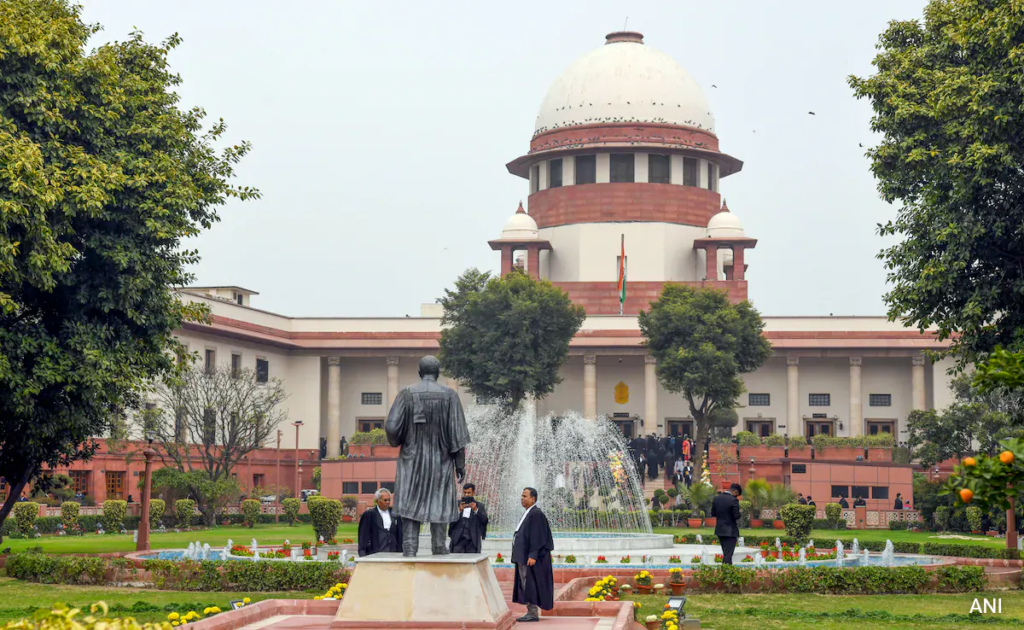The Supreme Court’s Nuanced View
In a recent verdict, the Supreme Court of India has underscored that while transparency in electoral processes is vital, voters do not possess an absolute entitlement to know every detail about a candidate’s assets. The bench, comprising Justices Aniruddha Bose and PV Sanjay Kumar, emphasized that disclosures must be relevant to the candidacy and impactful on voting decisions.

The apex court’s ruling emphasizes the delicate balance between transparency and privacy in the electoral arena. It affirmed the right to privacy for candidates concerning matters inconsequential to their suitability for public office. The bench articulated that voters cannot demand exhaustive revelations into a candidate’s private life, particularly when such disclosures do not significantly influence the voting process.
Central to the court’s pronouncement is the recognition that not every item of a candidate’s property warrants disclosure. The bench clarified that mundane possessions like clothing, shoes, crockery, stationery, and furniture need not be declared unless they hold considerable value or reflect significantly on the candidate’s lifestyle. This nuanced stance underscores the court’s commitment to ensuring disclosure requirements serve the genuine interests of voters without unduly intruding into candidates’ private affairs.
The case at hand, involving Independent MLA Karikho Kri from Tezu in the 2019 Arunachal Pradesh Assembly election, exemplifies the complexities surrounding candidate asset disclosure. The Supreme Court’s intervention set aside the Gauhati High Court’s decision nullifying Kri’s election, emphasizing the need for a balanced approach in interpreting disclosure requirements.
The High Court had invalidated Kri’s election following a petition by Congress candidate Nuney Tayang. Tayang alleged that Kri omitted crucial information from his election nomination papers, specifically regarding his occupation of a government accommodation. Additionally, the petitioner contended that Kri failed to furnish “No Dues Certificates” from the relevant department regarding rent, electricity, water, and telephone charges for the government accommodation.
The Supreme Court’s ruling in this case underscores the importance of contextualizing asset disclosure requirements within the broader framework of electoral integrity. While transparency is paramount, indiscriminate demands for disclosure can encroach upon candidates’ privacy rights. By upholding Kri’s election, the court reaffirmed the principle that disclosures should only pertain to matters directly relevant to a candidate’s suitability for public office.
Moreover, the judgment underscores the need for clarity and consistency in interpreting disclosure guidelines. Ambiguities in the law can lead to uncertainty and inconsistency in electoral disputes, potentially undermining the legitimacy of election outcomes. The Supreme Court’s elucidation of the scope of asset disclosure requirements provides much-needed guidance for future electoral contests.
Critics may argue that the court’s ruling could potentially weaken transparency measures in electoral processes. However, such concerns must be weighed against the fundamental right to privacy, which is equally critical in ensuring the integrity of democratic institutions. By striking a balance between transparency and privacy, the court’s decision reinforces the foundational principles of democracy while safeguarding individuals’ rights.
Moving forward, electoral authorities and lawmakers must heed the Supreme Court’s guidance in formulating and implementing disclosure regulations. Clear and reasonable guidelines will enhance transparency without unduly burdening candidates or infringing on their privacy rights. Moreover, robust enforcement mechanisms are essential to ensure compliance with disclosure requirements and maintain the integrity of the electoral process.
In conclusion, the Supreme Court’s nuanced approach to voters’ right to candidate asset disclosure represents a significant milestone in India’s electoral jurisprudence. By affirming the importance of transparency while safeguarding candidates’ privacy rights, the court has struck a delicate balance that promotes electoral integrity and democratic principles. As India continues to evolve its electoral framework, the court’s guidance will remain invaluable in navigating the complex interplay between transparency, privacy, and democratic governance.

[…] execution by lethal injection was confirmed by the Missouri Department of Corrections, marking the culmination of a legal battle that saw […]